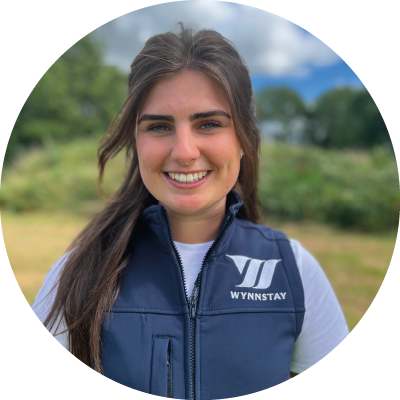Measuring the growth rate in Youngstock is one of the most significant ways to measure overall performance. By calculating average daily gain (ADG) we can work out how well the young stock is growing and use the information as a method of monitoring whether you are using the right feeds.
When rearing dairy calves or beef calves, it is important that they grow in an efficient way to meet their target bulling weights or finishing weights on time. Using weigh bands or weighing scales on young calves will give a good indicator of how the calves are progressing and show average daily gain. This will highlight any issues that are preventing calves from reaching sufficient weight. Monitoring growth is also a way to identify problems with your system and rearing protocols.
Average daily gain is calculated by diving the difference between the most recent weight by the days since last weight.
Birth
The first two months of a calf’s life is when it will grow most efficiently, so high growth rates should be targeted during milk feeding. A dairy heifer calf should reach double its birth weight within the first 2 months, ready to inseminate (15 months) at 55% of its mature body weight and calve down (24 months) at 85% of mature body weight. So, making sure the calf is reaching its full potential at the earliest stage of life is crucial for its future.
Optimum colostrum management will enable the calf to have efficient growth and organ development (heart, liver, lungs, muscle). This will help to grow a robust calf and subsequently a robust mature animal. If a calf is stunted in growth by one month of age, it will never recover from the loss and therefore become an underperforming mature animal, which could affect your future herd. An important thing to remember is that 10% of the birth weight should be given in colostrum at birth. For example, a calf born at 40kg should be given 4L of good-quality colostrum within three hours of birth. This gives the calves the immunity they need in the early stages of life.
Preweaning
Calves become vulnerable in the 4–5-week period as the antibodies from colostrum will decrease at this time. It is a vital time to introduce high-quality feeds to counteract the decreasing milk intake and enable the calf to gain and maintain a healthy weight.
Weighing calves pre-weaning will allow changes to be made if needed at this time. This gives a good indication that the rearing protocols are working well or if changes should be made in the earlier stages of life. Before weaning ensure calves have an intake of 1.5 kg of concentrates for 3 consecutive days to maintain their body weight. By doing so, the calf is more likely to deal with the stressful time at weaning. A vital part of calf rearing is to ensure that the calf is put through the least amount of stress possible for it to thrive. They are the future of the farm after all.










